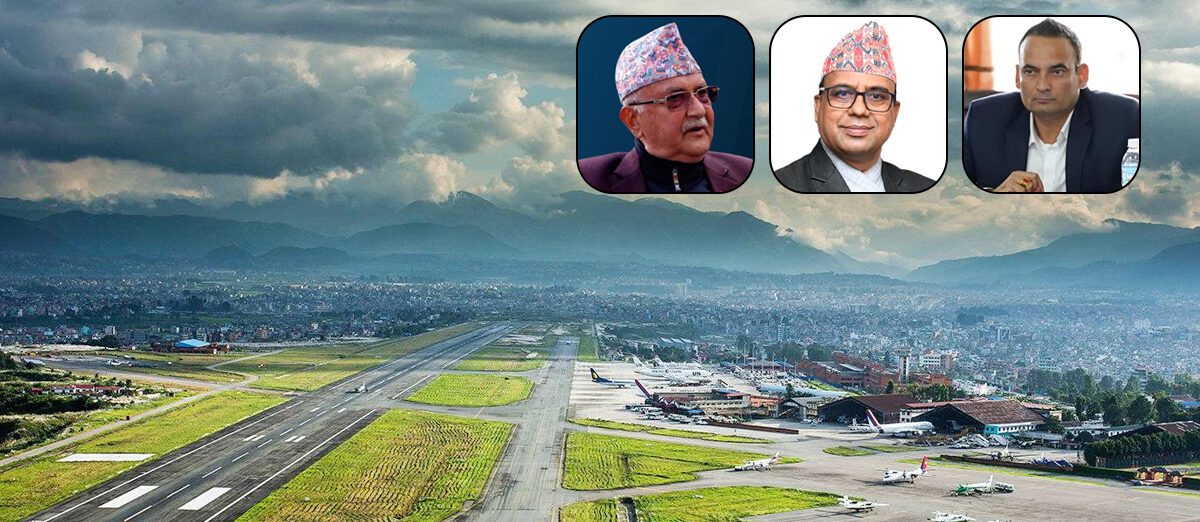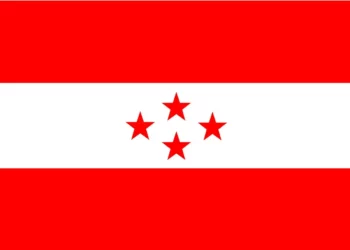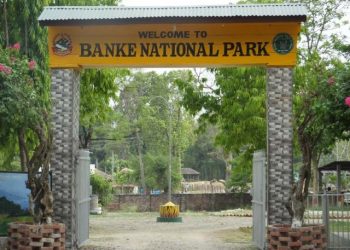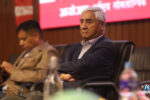KATHMANDU: CPN-UML Chairman KP Oli is currently occupying the office of the Prime Minister and Council of Ministers at Singha Durbar, the Federal Secretariat that oversees and coordinates the government of Nepal.
The ‘aerial distance’ to the country’s first and only Tribhuvan International Airport (TIA) is just three kilometers from his office.
Additionally, the Civil Aviation Authority of Nepal (CAAN), which regulates airspace, is located a mere 225 meters from the gate of Singha Durbar.
The significance of this proximity is critical: The officials from these agencies can quickly block airways and facilitate a government-protected mafia operating in the aviation sector.
Since last Friday, the Civil Aviation Authority of Nepal has begun closing the airport from 10:00 PM to 8:00 AM (10 hours) as part of an Air Transport Capacity Enhancement Project, which costs Rs 15 billion.
CAAN officials have explained that the reduced operating hours are necessary to facilitate the expansion of the taxiway on the southwest side of the airport, the international apron on the north side, and the hangar apron on the east side.
Speaking to Khabarhub on the condition of anonymity, he stated, “In the past, domestic airfares were lowered during Dashain by citing floods as a reason. Now, the airport expansion has become a similar excuse to raise the prices of international tickets.”
Tribhuvan International Airport has issued a ‘Notice to Airmen’ for the daily 10-hour closure, modifying the flight schedule accordingly.
Gyanendra Bhul, Information Officer of CAAN, stated that due to the shortened operating hours, there has been a 35 percent reduction in domestic flights and a 29 percent reduction in international flights.
If CAN does not reverse its decision, the airport will remain closed for 10 hours daily for the next five months, until March 18. Previously, the airport was only closed from 2 AM to 6 AM.
CAAN has a history of shortening the airport’s operating hours under the guise of maintenance and expansion contracts.
Over the last decade, the airport’s hours have been cut multiple times for similar reasons. For instance, in 2075 BS, the airport was closed for 10 hours a day for four months for runway maintenance, and in 2077 BS, it was closed for 12 hours a day for runway expansion.
Ticket price agreements
With the airport’s reduced operating hours, passengers are experiencing significant inconveniences, including soaring airfare.
Airlines have increased domestic flight fares by up to three times. International ticket prices have also surged by over 300 percent due to collusion between airline companies and travel agencies, resulting in a cartel-like manipulation of ticket prices between the minimum and maximum fares established by CAAN.
This situation has left both domestic and international travelers, including tourists visiting Nepal and workers seeking foreign employment, in a difficult position.
Rajendra Bhandari, President of the Nepal Foreign Employment Federation, held a press conference on Saturday, expressing concerns that rising airfares make it difficult to train workers.
He noted that travel agencies are now charging up to Rs 100,000 for tickets that should cost around Rs 30,000 to Rs 35,000. Even those willing to pay the higher fares are struggling to secure tickets.
According to Bhandari, approximately 1,500 new workers leave Nepal for foreign employment every day, a number that could rise to 2,000 when including those returning from vacation. In addition to workers, many students, expatriates, and tourists rely on air travel daily.
Before the airport’s capacity expansion closure, airlines and travel agencies raised their fares on Saturday.
Despite this sudden increase, there has been little interest from the Ministry of Tourism, the CAAN, the Ministry of Foreign Affairs, or the Ministry of Labor Employment and Social Security to address the situation.
On Saturday, a five-point agreement was reached between government officials and airline representatives; however, ticket prices remain unchanged, indicating that the agreement has yet to be effectively implemented.
Airport expansion is just an excuse
A ticket seller for international airlines claims that the airport expansion is merely an excuse for the exorbitant increase in airfares.
While Prime Minister Oli was in the U.S. during the floods, he instructed a reduction in fares. Nevertheless, airlines continued to sell tickets at inflated prices.
Speaking to Khabarhub on the condition of anonymity, he stated, “In the past, domestic airfares were lowered during Dashain by citing floods as a reason. Now, the airport expansion has become a similar excuse to raise the prices of international tickets.”
He added, “Reducing the flight duration is supposed to alleviate pressure, but it’s all part of a scheme benefiting those selling tickets at inflated prices, right up to Singha Durbar.”
Another travel agent echoed these sentiments, suggesting that while it may appear that the airport contracts and projects are legitimate, airfare increases are being masked by arrangements made by state officials.
“We are benefiting from this situation,” he noted. “However, it seems the commitments regarding the airport contract may not have been fully honored. Government officials announced the airport would be closed for 10 hours starting on a specific date, essentially preparing the ground for ticket price hikes.”
“Warning” to cover up government inaction
Citizens have expressed significant frustration over the arbitrary increase in airfares under the pretext of airport expansion.
Faced with ongoing controversies and poor performance, the government has been forced to adopt a defensive stance, attempting to mask its negligence regarding airfare issues.
It is known that airline companies have a prior agreement that grants travel agencies exclusive rights to sell tickets.
Despite this, the government regulator, CAN, failed to act before the flight operation hours were reduced.
However, as public pressure mounted, reports emerged that CAAN Director General Pradeep Adhikari took a firmer stance with airline representatives on Saturday, warning them that flights would not be allowed without selling tickets at the previous rates.
Yet, even as of Sunday afternoon, issues regarding ticket prices and availability persisted.
The Dashain dilemma
This year, during Dashain, airline companies caused a significant spike in domestic fares.
Major roads were blocked across the country due to floods and landslides, leaving air travel as the only viable option for those needing to return home for the festival.
Pradeep Adhikari, the Director General of the Civil Aviation Authority of Nepal (CAN), took on his role with a commitment to remove Nepal’s airspace from the European Commission’s flight safety blacklist.
While Prime Minister Oli was in the U.S. during the floods, he instructed a reduction in fares. Nevertheless, airlines continued to sell tickets at inflated prices.
On social media, Prime Minister Oli acknowledged complaints about higher fares and urged airlines to offer discounted prices during the crisis.
Departmental Minister Badri Prasad Pandey also commented in the media that airfares had been reduced following special initiatives and instructions.
Despite these assurances, airlines did not lower the fares that had been abruptly increased during the crisis until after Tihar. For instance, a route that typically costs Rs 5,000 had its fare doubled.
After the reduction in flight operations for the expansion of Tribhuvan International Airport, domestic airfares remain similarly high.
Badri Prasad Pandey serves as the Minister of Culture, Tourism, and Civil Aviation in Prime Minister Oli’s cabinet and is also a joint general minister of the Nepali Congress.
Pradeep Adhikari, the Director General of the Civil Aviation Authority of Nepal (CAN), took on his role with a commitment to remove Nepal’s airspace from the European Commission’s flight safety blacklist.
However, instead of achieving this goal, the frequency of air accidents has increased during his tenure.









Comment